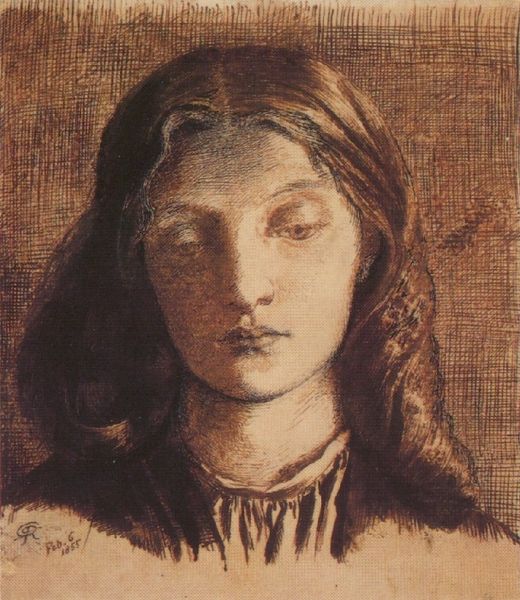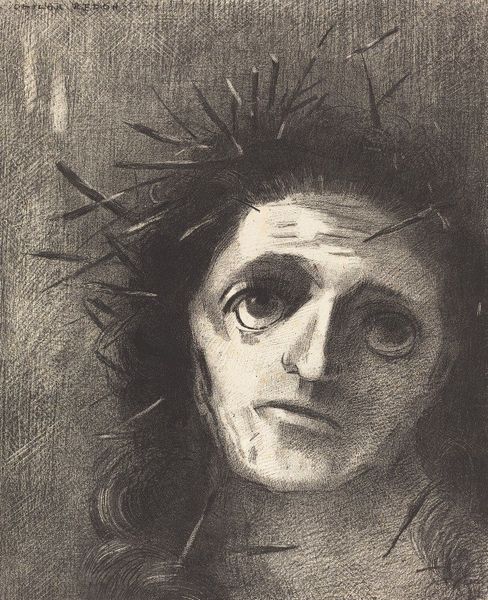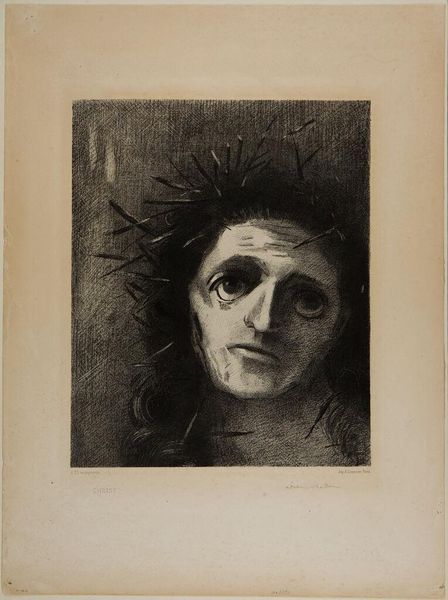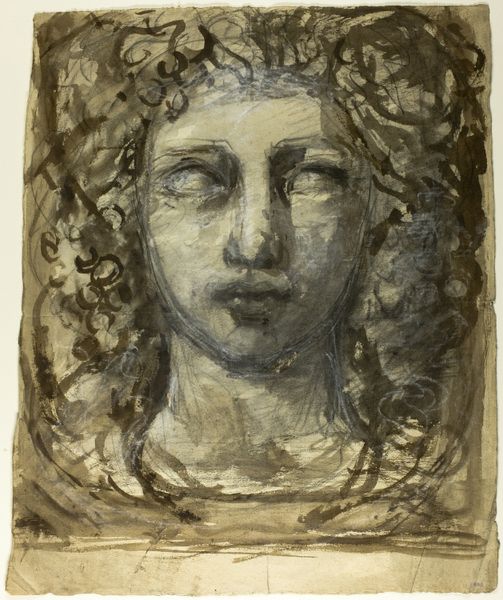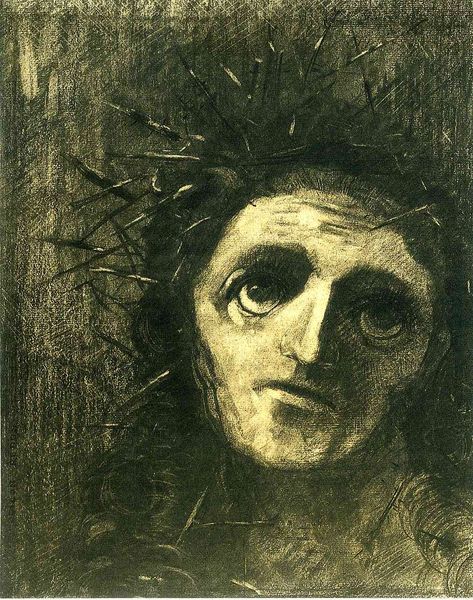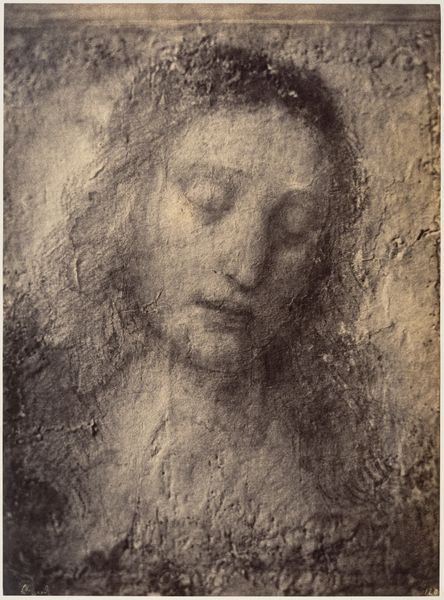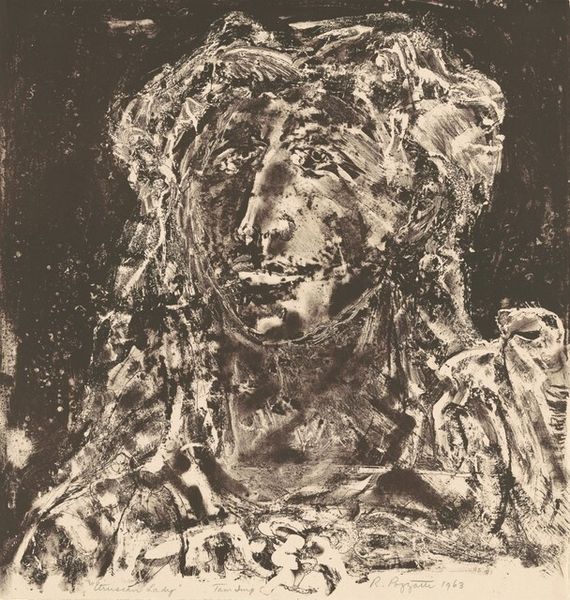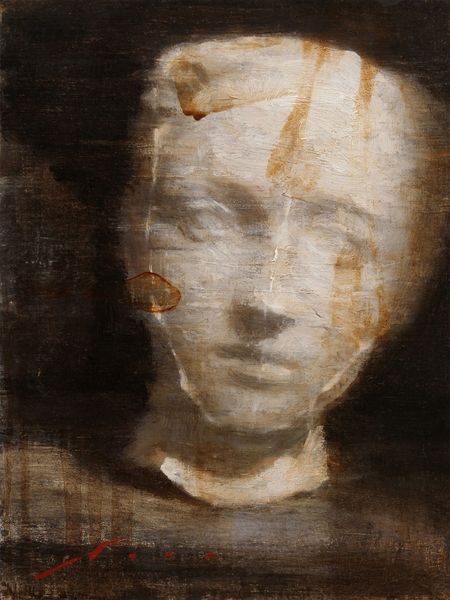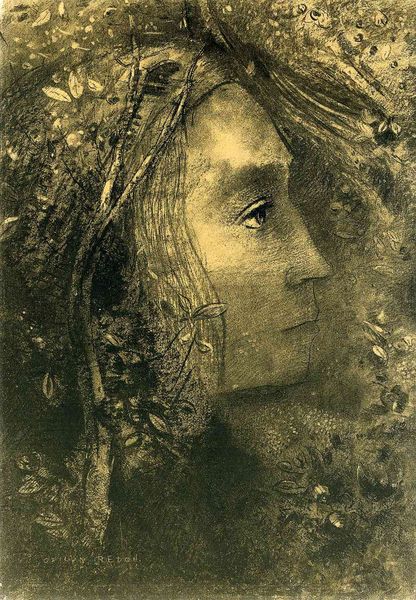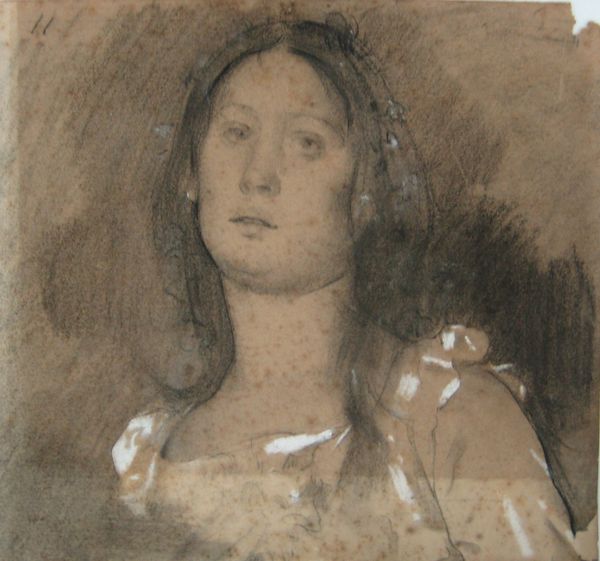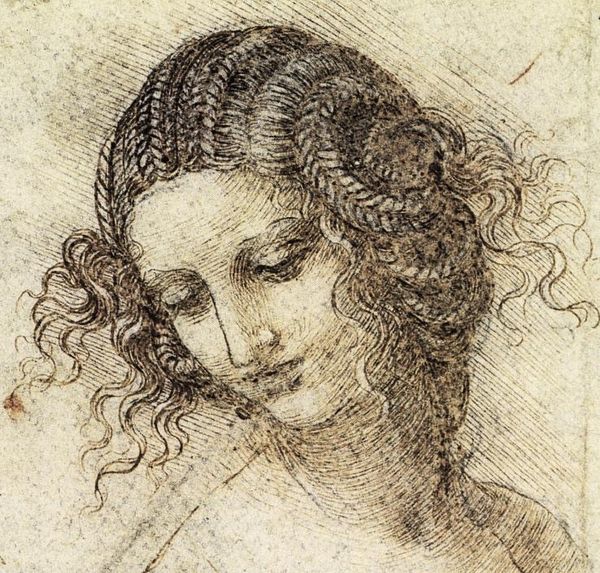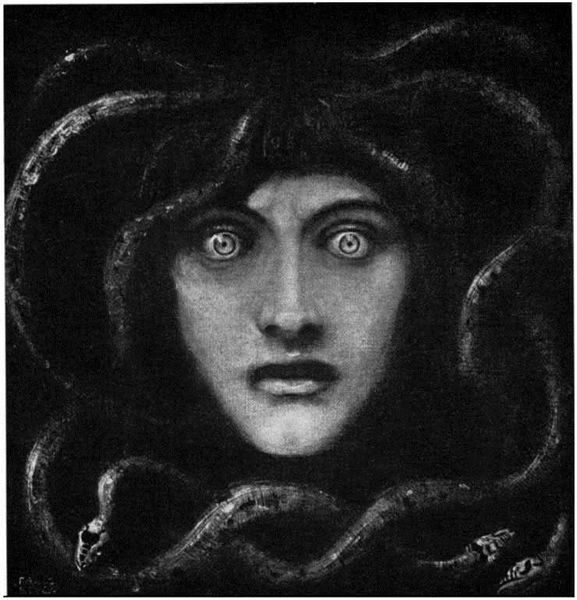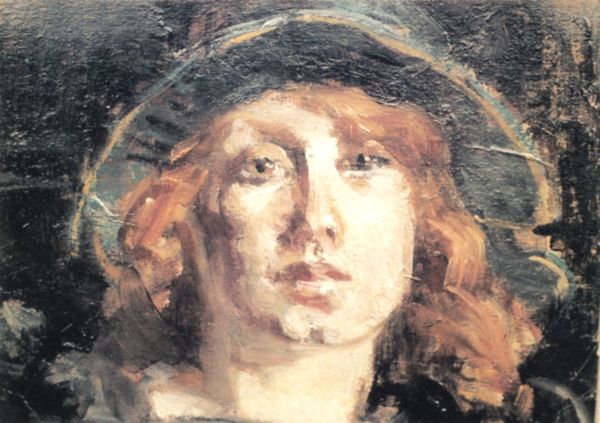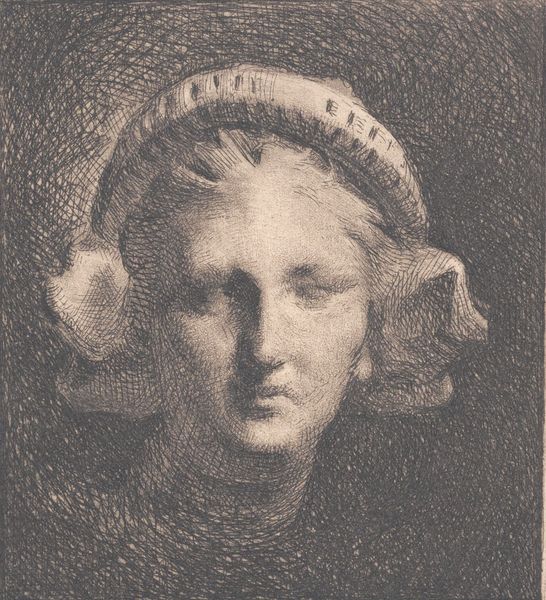
oil-paint
#
portrait
#
oil-paint
#
charcoal drawing
#
roman-mythology
#
romanticism
#
mythology
Copyright: Public domain
Editor: So, here we have Böcklin’s “Medusa”, rendered in oil paint. It’s… surprisingly haunting. Less monstrous, more melancholic, somehow. What do you make of it? Curator: Exactly. Böcklin's depiction invites us to consider Medusa beyond the simplistic monster trope. Considering its historical context, especially the rise of feminist interpretations of mythology, we can view this as a portrait of a woman wronged, her monstrous transformation a direct consequence of Poseidon’s rape in Athena's temple. What feelings does that incite when you look at her now? Editor: Sadness, maybe even… rage? She's a victim, and that raw emotion is palpable. Curator: Precisely! Böcklin subverts the traditional narrative. He uses the romantic style to encourage empathy, to see her humanity, challenging centuries of patriarchal interpretations. It begs the question: is she truly a monster, or a symbol of violated agency and unjustly demonized feminine power? Consider how male artists previously painted her decapitated, a trophy for male heroes. Böcklin focuses on her pain. Editor: That makes the piece far more resonant. The snakes in her hair aren’t just scary; they're like a crown of suffering. Curator: Yes! Böcklin prompts us to recognize the consequences of violence against women, literally written on her body. It transforms a mythical horror into a very real, and very contemporary, tragedy. Editor: I never considered Medusa’s story from that angle. It's empowering to see a classical myth interpreted with such potent feminist undertones. Curator: Art helps us understand cultural wounds, question established narratives, and reimagine possibilities for equity. Let us leave with that thought.
Comments
No comments
Be the first to comment and join the conversation on the ultimate creative platform.
